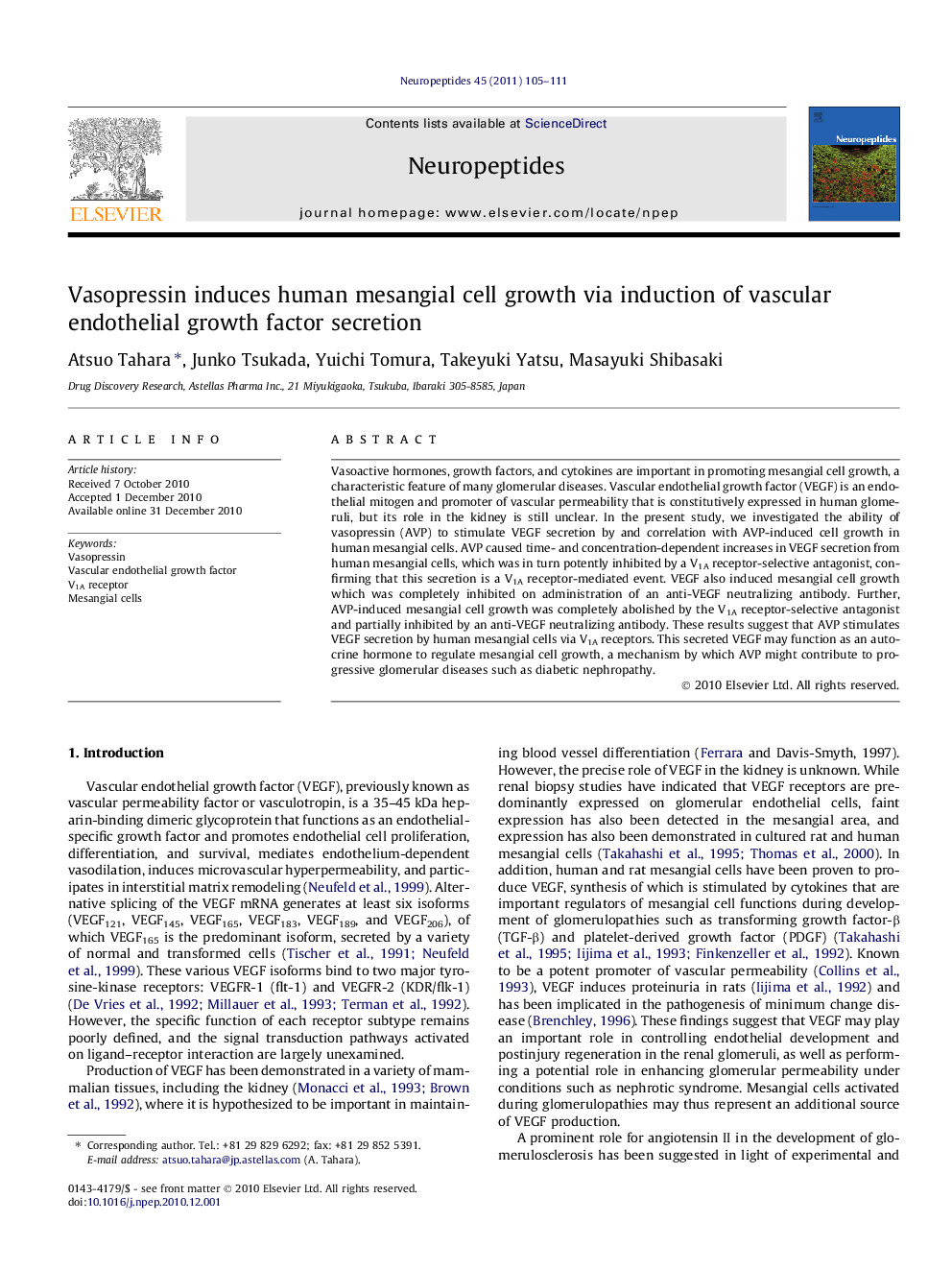| Article ID | Journal | Published Year | Pages | File Type |
|---|---|---|---|---|
| 2808139 | Neuropeptides | 2011 | 7 Pages |
Vasoactive hormones, growth factors, and cytokines are important in promoting mesangial cell growth, a characteristic feature of many glomerular diseases. Vascular endothelial growth factor (VEGF) is an endothelial mitogen and promoter of vascular permeability that is constitutively expressed in human glomeruli, but its role in the kidney is still unclear. In the present study, we investigated the ability of vasopressin (AVP) to stimulate VEGF secretion by and correlation with AVP-induced cell growth in human mesangial cells. AVP caused time- and concentration-dependent increases in VEGF secretion from human mesangial cells, which was in turn potently inhibited by a V1A receptor-selective antagonist, confirming that this secretion is a V1A receptor-mediated event. VEGF also induced mesangial cell growth which was completely inhibited on administration of an anti-VEGF neutralizing antibody. Further, AVP-induced mesangial cell growth was completely abolished by the V1A receptor-selective antagonist and partially inhibited by an anti-VEGF neutralizing antibody. These results suggest that AVP stimulates VEGF secretion by human mesangial cells via V1A receptors. This secreted VEGF may function as an autocrine hormone to regulate mesangial cell growth, a mechanism by which AVP might contribute to progressive glomerular diseases such as diabetic nephropathy.
